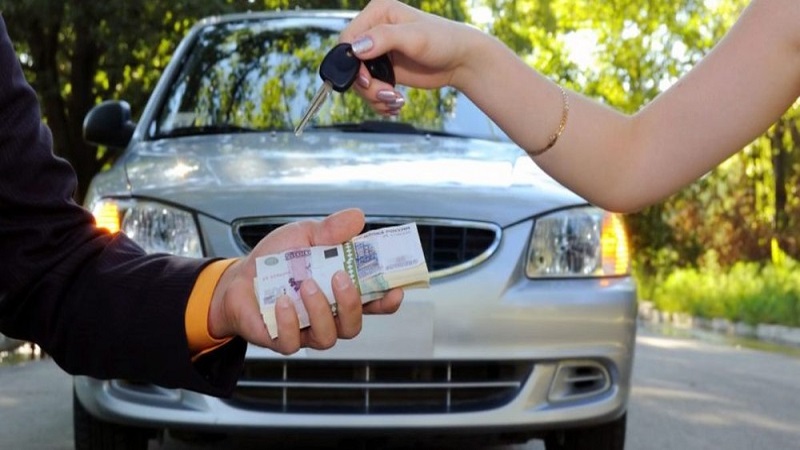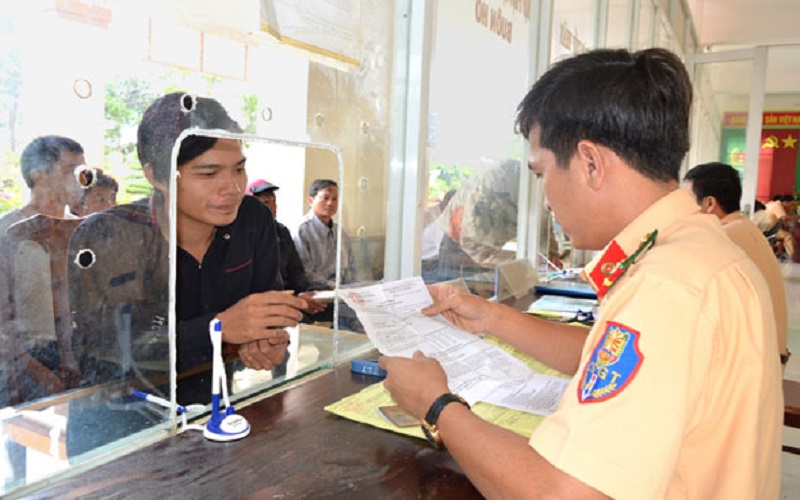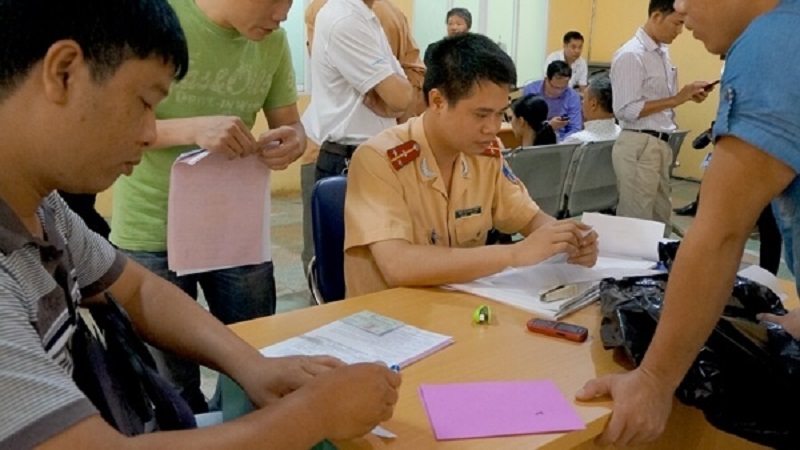What procedures are involved in transferring car ownership, and what documents are required? Below is some information about the latest regulations on transferring car ownership that new car owners should know.
1 Documents required for car ownership transfer procedure
According to Articles 7, 8, and 9 of Circular No. 58/2020/TT-BCA, which stipulates the procedures for granting, revoking registration, and license plates for road motor vehicles issued by the Minister of Public Security, to carry out the procedure for transferring car ownership according to the new regulations in 2021, you need to prepare the following documents:
 Documents required for car ownership transfer procedure
Documents required for car ownership transfer procedure
-
Car registration certificate
-
Automobile inspection certificate
-
Automobile insurance (if any)
-
Identity card, household registration book of the seller and the buyer
-
Bank release letter (if any)
If there are any subsequent civil disputes, depending on the case, some places may require a certificate of single status or a marriage certificate.
For reference: Simple Guide
2 Cost of transferring car ownership
 Cost of transferring ownership of old cars
Cost of transferring ownership of old cars
According to Decree 20/2019/ND-CP, the fee for registration of old cars = 2% x registration fee calculation price.
According to Point d, Clause 3, Article 3 of Circular No. 301/2016/TT-BTC, when buying an old car, the registration fee calculation price is the residual value calculated according to the usage time of the asset.
Residual value of the asset = New asset value x % of the residual quality of the asset
In which, the percentage of the residual quality of the asset is stipulated as follows:
For the usage time of the car:
-
Within 1 year, the residual value of the car compared to a new car is 90%
-
From 1 to 3 years, the residual value of the car compared to a new car is 70%
-
From 3 to 6 years, the residual value of the car compared to a new car is 50%
-
From 6 to 10 years, the residual value of the car compared to a new car is 30%
-
Over 10 years, the residual value of the car compared to a new car is 20%
According to the provisions of Circular No. 229/2016/TT-BTC, the cost of transferring ownership of old cars is stipulated as follows:
-
For cases of re-issuance of registration and license plates: The cost is VND 150,000/time/car.
-
For cases of re-issuance of registration without license plates: The cost is VND 30,000/time/car
For reference:
3 Procedure for transferring car ownership
The procedure for transferring ownership of old cars is carried out at the Traffic Police Department of the provincial Public Security.
Procedure for transferring car ownership within the same province
-
Vehicle registration application form;
-
Documents for transfer of vehicle ownership;
-
Vehicle registration fee documents;
-
Certificate of vehicle registration and license plate revocation (except for cases of transferring ownership within the same province immediately after the transfer of vehicle ownership).
The license plate will be granted immediately upon receipt of the valid registration dossier.
The Vehicle Registration Certificate will be granted after no more than 2 working days from the date of receipt of the valid dossier.
 The seller declares and submits the vehicle registration certificate within 7 days
The seller declares and submits the vehicle registration certificate within 7 days
Procedure for transferring car ownership to another province
The seller declares and submits the vehicle registration and license plates
-
02 Vehicle Transfer Declaration Forms (according to the form);
-
Documents for transfer of vehicle ownership;
-
Vehicle registration certificate, license plate;
-
Papers of the buyer, the recipient of the transfer, the giver, or the donor of the vehicle.
The person performing the procedure does not have to pay any fees and will receive a certificate of vehicle ownership transfer and relocation for the owner.
The buyer performs the procedure at the place where the vehicle is transferred to
-
Vehicle registration application form according to Form 01 issued together with Circular 58;
-
Documents for transfer of vehicle ownership (Article 2, Article 8 of Circular 58);
-
Vehicle registration fee documents (Article 3, Article 8 of Circular 58);
-
Certificate of vehicle registration and license plate revocation.
-
Papers of the vehicle owner.
The buyer pays the vehicle registration fee as prescribed and will be granted a license plate. The new Vehicle Registration Certificate will be granted after 02 working days.
4 Some questions about the procedure for transferring car ownership
Do I need to transfer the ownership when buying an old car?
Of course, you need to transfer the ownership according to the law. You can refer to Section 3.
What are the penalties for not transferring the ownership when buying an old car?
According to Decree 100/2019/ND-CP on administrative sanctions in the field of road and rail transport, the owner of the vehicle who fails to register the vehicle or transfer the vehicle ownership as prescribed when buying, being given, being gifted, being allocated, or inheriting the asset will be subject to the following penalties:
Article 30, Clause 4 and Clause 7 prescribe the sanction levels for vehicle owners who violate the regulations related to road transport, specifically as follows:

If the owner of the car fails to carry out the procedure for registering the transfer of vehicle ownership (to change the name of the vehicle owner in the Vehicle Registration Certificate to his/her name) as prescribed when buying, being given, being gifted, being allocated, or inheriting an asset which is a car, tractor, specialized vehicle, or vehicle similar to a car, he/she will be fined from VND 2,000,000 to VND 4,000,000 in case of an individual, from VND 4,000,000 to VND 8,000,000 in case of an organization or group.
Additional penalties:
– For violations specified in Point b, Clause 4; Point e, Point g, Clause 5; Point c, Point d, Point l, Point m, Clause 7 of this Article, the violator must register the vehicle, transfer the vehicle ownership, change, or revoke the Vehicle Registration Certificate, license plate, Certificate of Technical Safety Inspection and Environmental Protection as prescribed (except for cases where the vehicle is confiscated).
How to transfer the ownership when buying an old car?
When buying an old car, you need to do the legal paperwork for the transfer of ownership, the procedure for which can be found in Section 3 above.
Can a car be transferred with a power of attorney?
The answer is no, in this case, the power of attorney must clearly state “the authorized person only owns the vehicle when the procedure for transferring the vehicle ownership has been completed”, therefore, the power of attorney does not allow the authorized person to sell the vehicle, but only to use and own the vehicle when the procedure for transferring the vehicle ownership has been completed.
If the authorized person has not completed the procedure for transferring the vehicle ownership, the vehicle still belongs to the previous owner, so the new owner cannot sell the vehicle to another person.
 Failure to transfer the ownership of a car will result in a fine of VND 2,000,000 to VND 4,000,000 for individuals
Failure to transfer the ownership of a car will result in a fine of VND 2,000,000 to VND 4,000,000 for individuals
What documents are required for transferring car ownership?
For transferring car ownership, please refer to Section 3 above for the procedure for transferring car ownership.
What is the procedure for transferring ownership of a gifted/donated car?
Both the giver and the recipient make a contract to prove that this is a gift to avoid disputes in the future. Then bring the following papers to the notary office:
-
ID/CCC
-
Household registration book
-
Certificate of marital status
-
Marriage certificate (if any)
-
Vehicle papers
After checking the dossier, the notary public will divide it into 3 copies, with each party keeping 1 copy.
Gifted cars are exempt from personal income tax. The recipient pays the registration fee according to the following calculation:
Amount payable = 2% x registration fee calculation rate
According to Article 06 of Circular No. 15/2014/TT-BCA, the procedure for registering the ownership of a gifted/donated car is as follows:
“Within 30 days from the date of making the document for transfer of vehicle ownership, the organization or individual buying, being transferred, given, or gifted the vehicle must go to the vehicle registration agency to carry out the procedure for registering the transfer of vehicle ownership and relocation of the vehicle”.
For reference:
The above is
































